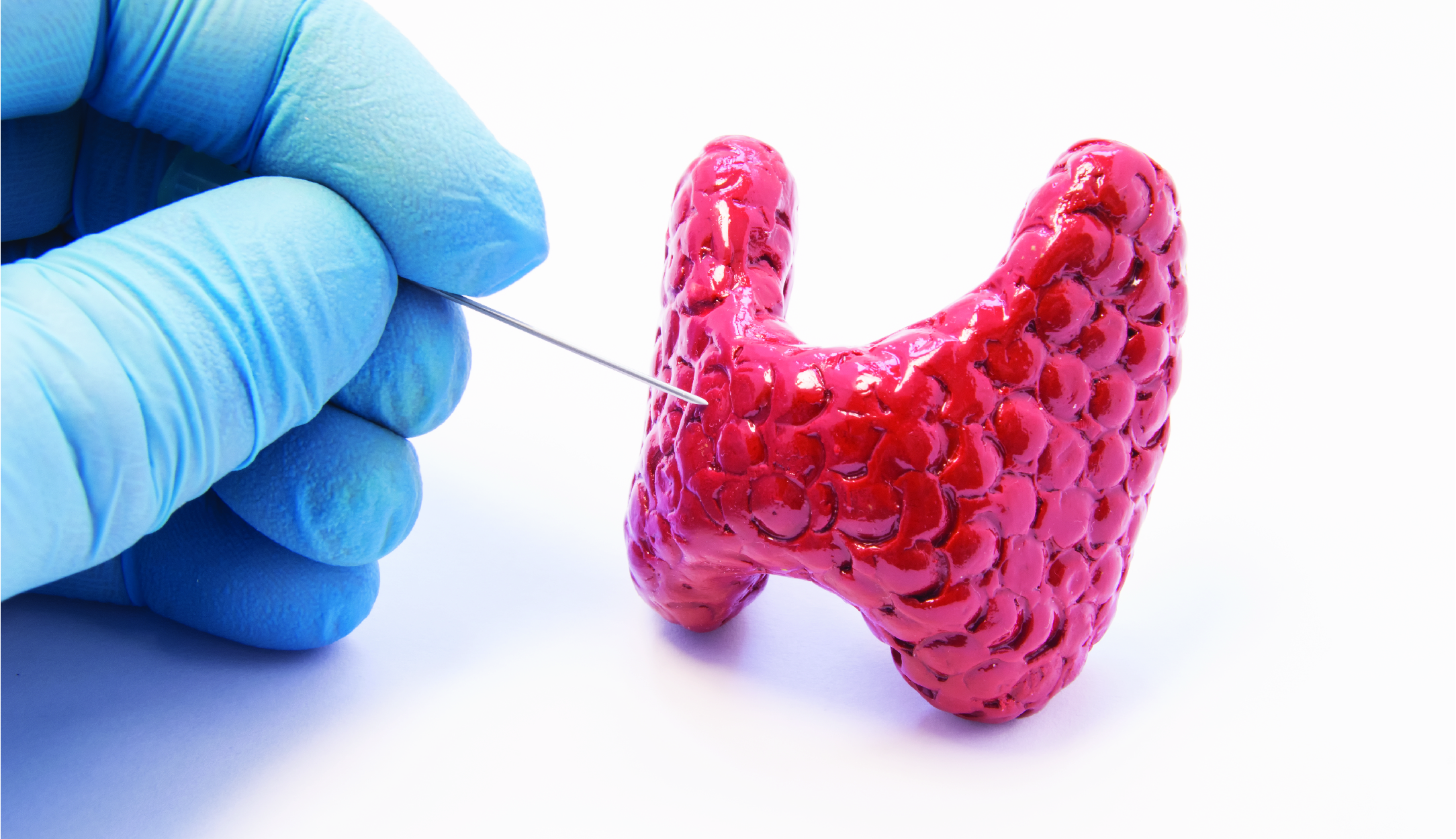A 35-year-old woman was experiencing uncommon anxiety, exhaustion, and weight fluctuation for several months. She attributed the symptoms to unsettled emotions following the recent death of a family member. But after a thyroid nodule was discovered during a dental exam, she requested an appointment with a Duke endocrinologist.
Following an initial consult, in which ultrasound confirmed two nodules, one on each side of the thyroid, the patient was referred to Carly E. Kelley, MD, MPH, an endocrinologist practicing at Duke Health Center South Durham.
Question: What treatment and monitoring steps did Kelley recommend?
Answer: Kelley performed fine needle aspiration (FNA) biopsies of both nodules; results indicated they were benign. But during a recommended routine follow-up five months later, the patient reported renewed periods of anxiety as well as intermittent heart palpitations. Tests revealed mildly low TSH indicative of subclinical hyperthyroidism, but two weeks later the thyroid function tests indicated normal levels, and all thyroid antibodies were negative. Kelley scheduled follow-up visits to continue monitoring the nodule.
In January 2020, approximately nine months after discovery of the nodule, the patient reported tenderness during a follow-up visit. “We investigated potential abnormalities, but the blood tests came back with normal values,” Kelley says. The best course was further monitoring, she notes.
By October 2020, the right nodule had doubled in size. Kelley repeated the FNA, which revealed a follicular lesion of undetermined significance that she characterized as Bethesda category III. “This cytopathology is indeterminate with a 5% to 15% chance of cancer,” Kelley says. “At this point, we opted for a molecular test using ThyroSeq (Sonic Healthcare USA, Austin, TX) that helps us analyze genes that contribute to cancer development.”
The molecular test results revealed an NRAS mutation, copy number alterations, and positive gene expression profile of a 70% thyroid cancer risk. As a result, the patient underwent a total thyroidectomy with surgical oncologist Michael T. Stang, MD in February 2021. Pathology revealed a 4.5 cm right unifocal follicular variant of papillary thyroid carcinoma. Stang used a transaxillary robotic approach to prevent a post-surgical scar on the neck.
“It was a large cancer determined to be at the T3 stage,” Kelley says. “During the procedure, the surgeons also removed a few lymph nodes which were negative for thyroid cancer.” Following the surgery, in May 2021, the patient was treated with radioactive iodine due to the large size of the tumor. She has now recovered fully with no evidence of disease at her 6 month postoperative follow up appointment.
Two Duke Clinics Offer Specialized Assessment of Thyroid Nodules
Carly E. Kelley, MD, MPH, and Anne Weaver, MD, offer FNA biopsy for thyroid nodules as well as specialized monitoring and management of thyroid nodules and thyroid cancer. Kelley practices at Duke Health Center South Durham; Weaver practices at the Duke Clinic 1A.
Duke Health Center South Durham
234 Crooked Creek Pkwy, Suite 400
Durham, NC 27713-8507
Appointments: 919.620.5300
Duke Clinic
30 Duke Medicine Circle, Clinic 1A
Durham, NC 27710-3000
Appointments: 919.620.5350
